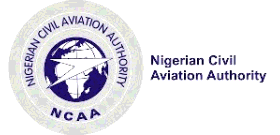 Nigeria Tightens Refund Rules: Airlines Ordered to Process Passenger Claims Within 14 Days
Nigeria Tightens Refund Rules: Airlines Ordered to Process Passenger Claims Within 14 Days
The Nigeria Civil Aviation Authority (NCAA) has taken decisive action to protect air travelers’ rights, issuing a clear directive to all domestic carriers: cease immediately the practice of informing customers that ticket refunds may take up to four weeks to process. This move signals a renewed focus on regulatory compliance and enhances consumer confidence in Nigeria’s rapidly expanding aviation sector.
At the heart of this development is the NCAA’s insistence that airlines adhere to the mandatory 14-day window for refund processing as set out in Part 19 of the NCAA Regulations 2023. By reaffirming this rule, the authority aims to eliminate confusion and ensure a consistent, fair approach to passenger compensation across the domestic market.
Enforcing a Standardized Refund Process
Domestic airlines operating within Nigeria have, in recent months, come under scrutiny for communicating extended refund timelines—often up to four weeks—when passengers cancel or are unable to use their tickets. The NCAA’s latest statement, delivered through Director of Public Affairs and Consumer Protection, Mr. Michael Achimugu, leaves no room for ambiguity: the 14-day rule is binding and supersedes any internal airline policy.
“There can’t be two captains-in-command on an aircraft,” Achimugu remarked, underlining the necessity for unified adherence to national standards. His comments also serve as a reminder that airline operators are not permitted to introduce conditions that conflict with established regulatory frameworks. This stance reinforces the NCAA’s authority as the sole arbiter of consumer protections in the aviation sector.
Passenger Empowerment and Industry Oversight
The NCAA’s directive empowers passengers to actively report any airline found to be communicating a four-week refund period. Travelers are encouraged to forward such correspondence directly to the Authority, ensuring swifter interventions and greater accountability from carriers. This call to action not only strengthens consumer rights but also signals the Authority’s willingness to enforce compliance through robust oversight.
For airlines, the message is unambiguous: duplicative or conflicting refund policies will no longer be tolerated. The Authority views such practices as a direct challenge to its mandate and a disservice to the flying public. By curbing these discrepancies, the NCAA is promoting a more transparent, equitable, and efficient aviation sector—one where passengers’ interests are placed firmly at the center of operational policies.
Implications for Africa’s Aviation Industry
This regulatory tightening has far-reaching implications for the wider African travel landscape. As Nigeria is home to some of the continent’s busiest domestic air routes, its standards often set benchmarks for regional peers. The NCAA’s insistence on a 14-day refund window aligns with international best practices and provides a model for other African regulators to emulate.
For travel professionals, this shift necessitates a recalibration of booking and advisory processes. Stakeholders must now ensure that refund communications and procedures reflect the NCAA’s requirements, thereby avoiding potential sanctions and preserving customer trust. This development also highlights the growing importance of consumer protection in Africa’s aviation sector—an area that will only gain prominence as passenger volumes grow and market competition intensifies.
Enhancing Industry Credibility Through Compliance
The NCAA’s intervention is more than just a procedural update; it is a clear signal that industry credibility hinges on strict adherence to statutory obligations. By enforcing a uniform standard across all operators, the Authority is actively working to restore faith in domestic aviation—a critical factor as Nigeria and other African nations pursue ambitious growth targets in the travel and tourism sector.
For airlines, the directive underscores the need to streamline refund management systems. Efficient, transparent processing not only ensures compliance but can also become a unique selling proposition in a marketplace where customer service is increasingly a differentiator. Adopting digital solutions that automate refund requests and track timelines will be crucial for carriers aiming to meet the 14-day requirement without sacrificing operational efficiency.
Looking Ahead: Market Dynamics and the Path to Sustainable Growth
This renewed regulatory oversight is likely to influence business models across the aviation value chain. As African airlines navigate a post-pandemic recovery, the drive for greater transparency and customer-centricity will shape future growth strategies. Regulatory bodies, in turn, will be expected to maintain high standards of oversight, responding swiftly to market abuses and evolving consumer expectations.
For the African travel sector, Nigeria’s approach offers a template for balancing operational realities with the imperative of robust consumer protection. As other countries modernize their own regulatory frameworks, the lessons from Nigeria will remain relevant—not only for airlines but for hotels, tour operators, and digital platforms seeking to build trust and drive repeat business in a competitive environment.
Ultimately, the NCAA’s directive is about more than refund timelines; it is about building a resilient, customer-focused aviation ecosystem that serves as the backbone of Africa’s future travel ambitions. By demanding accountability now, the Authority is laying the groundwork for a more dynamic, trustworthy, and sustainable industry in years to come.
